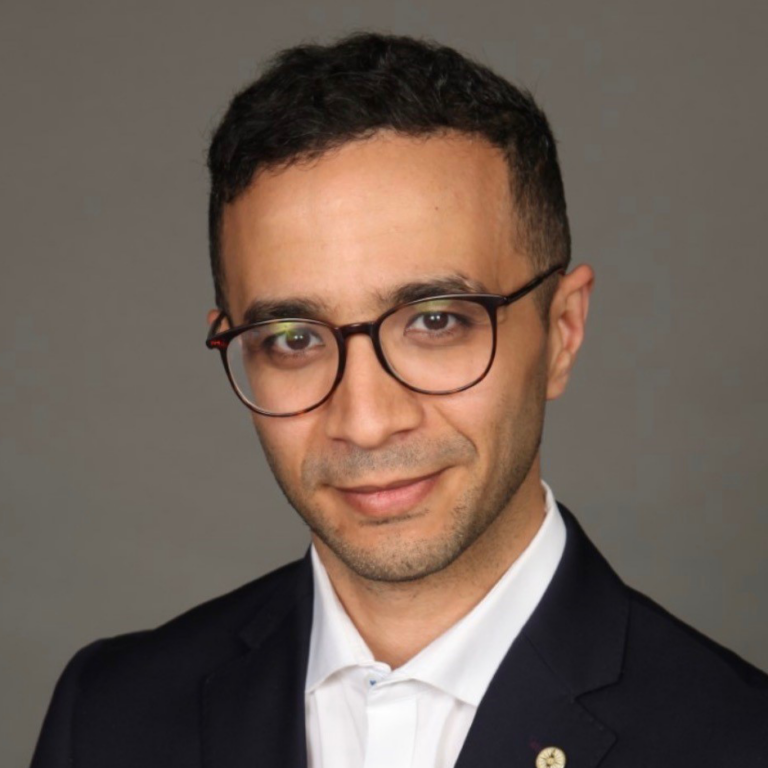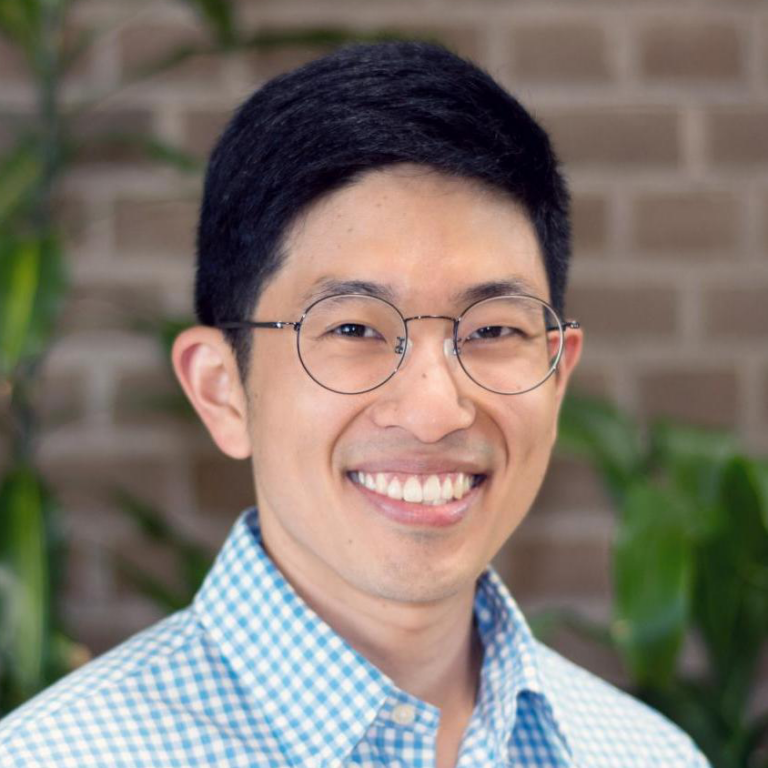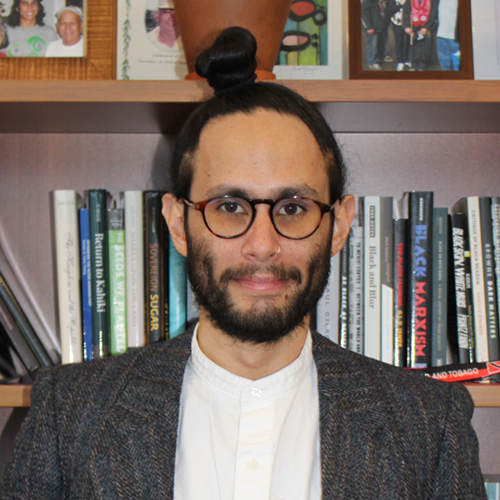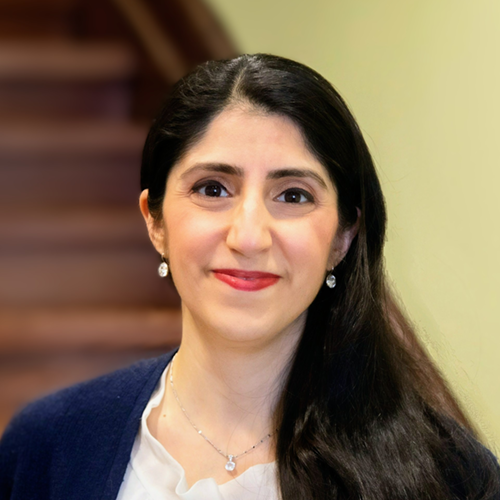From: Cheryl Regehr, Vice-President & Provost
Susan McCahan, Vice-Provost, Innovations in Undergraduate Education
Date: April 14, 2023
Re: 2022-23 Recipients of the Early Career Teaching Award (PDAD&C #31)
We are delighted to announce the recipients of the 2022-23 University of Toronto Early Career Teaching Award. In addition to congratulating this year’s recipients, we would like to thank the nominators for their work in preparing submissions. We would also like to thank the members of the selection committee for their dedication to recognizing excellence in teaching at the University of Toronto.
University of Toronto Early Career Teaching Award, 2022-23
This award recognizes faculty members who demonstrate an exceptional commitment to student learning, pedagogical engagement and teaching innovation. This year the Committee granted five awards of $3,000.

Alexandra Bolintineanu
Assistant Professor, Teaching Stream
Centre for Medieval Studies and Woodsworth College, Faculty of Arts & Science
Professor Alexandra Bolintineanu joined the Centre for Medieval Studies and Woodsworth College in 2016. Her research focuses on medieval wonders and monsters, digital pedagogy and illegal typewriters. Her major achievement has been creating and coordinating Woodsworth’s minor program in Digital Humanities, for which she designed the curriculum and designed and taught the first nine new courses. Program courses combine research and critical analysis with experiential learning, as students visit rare book collections and museums, and work hands-on with text encoding, digital mapping, data visualization, augmented and virtual reality and 3D printing.
Students in Professor Bolintineanu’s courses learn to create digital exhibits and maps, turn medieval riddles into video games, and build digital archives of the lives of banned and endangered books. In one course, students analyzed the usability of their own teaching platform, Bb Collaborate. The project resulted in a journal publication with undergraduate students as co-authors. In a fourth-year capstone seminar, students join the research teams of digital humanities faculty across the university, where they gain experience in real-world research while also producing their own final projects.
Beyond university classrooms, Bolintineanu collaborated with U of T’s The Book and the Silk Roads project to design an online exhibit, Hidden Stories along the Silk Roads, a companion to a major exhibition at the Aga Khan Museum—a valuable resource during the museum’s pandemic closures. This resource fed back into the classroom: Professor Bolintineanu’s students visited the exhibition, studied its artifacts, and learned from curators, museum educators, and collections specialists about the challenges and behind-the-scenes work of a major museum exhibition.
In addition to the Early Career Teaching Award, Professor Bolintineanu received the Canadian Society for Digital Humanities Outstanding Early Career Award (2019) and the Centers and Regional Associations (CARA) Teaching Prize of the Medieval Academy of America (2023).

George Ibrahim
Associate Professor, Full-Time Clinical Appointment
Department of Surgery, Temerty Faculty of Medicine
Professor George Ibrahim is a pediatric neurosurgeon at the Hospital for Sick Children in Toronto and Associate Professor in Biomedical Engineering, Medical Science and Surgery. He is a senior scientist at the Hospital for Sick Children Research Institute. He co-directs Canada’s only pediatric deep brain stimulation clinic and program. He also runs an active research lab focused on the study of brain Connectomics to guide novel treatments for pediatric neurological and neurodevelopmental disorders.
Professor Ibrahim plays a role in teaching undergraduate, graduate and postgraduate trainees. Within the Division of Neurosurgery, he leads the mentorship mandate and is the site director for the Residency Program Committee. He also has a longstanding interest in global neurosurgical education. Together with Dr. Mojgan Hodaie, he is developing microlearning tools to facilitate neurosurgical teaching locally and internationally. These are AI-driven learning tools to advance competency-based education focused on personalized learners’ journeys and needs.

Sanghyun (Kris) Kim
Assistant Professor, Teaching Stream
Department of Chemical & Physical Sciences, University of Toronto Scarborough
Professor Sanghyun (Kris) Kim joined the Department of Physical & Environmental Sciences (Scarborough) and Department of Chemistry (St. George) as an Assistant Professor, Teaching Stream, in July 2019. Prior to joining he was involved in peer-to-peer coaching through the Teaching Assistants’ Training Program and worked with a team of Learning Strategists in Student Life to support students in strengthening an array of academic and metacognitive skills. He continues to leverage these experiences as a chemistry educator and actively encourages students to reflect on how they learn through various forms of guided activities embedded within his courses. He is also an advocate for experimenting with alternative forms of assessment to offer students diverse opportunities to showcase their learning.
Collaboration has been at the core of several pedagogical initiatives for Professor Kim. Over the last few years, he’s collaborated with a first-year teaching team of faculty and TAs at UTSC to co-develop a peer-review writing activity and digital resources to scaffold students’ writing skills in large first-year chemistry courses. He’s also co-designed a wide range of virtual and in-person laboratory exercises with students as partners. More recently, Professor Kim was a part of the Community Engaged Learning Faculty Fellowship Program (with the Centre for Community Partnerships), where he had the opportunity to exchange ideas with colleagues across the campuses and disciplines. These conversations led to the incorporation of community-engaged learning projects in his second-year analytical chemistry course, creating space for students to learn about the community around them and opportunities to apply their chemistry skills to help address real and ongoing challenges faced by community partners. Over the last year he has fostered relationships with the UTSC Campus Farm and Toronto Zoo, which have evolved into several student-led research projects. Student researchers have gone on to win awards at the local and provincial level as well as transferring these experiences to securing co-op positions. Professor Kim actively shares these collaborative experiences and the impact they have on student learning through international conferences and publications.

Uahikea Maile
Assistant Professor
Department of Political Science, Faculty of Arts & Science
Professor Uahikea Maile is a Kanaka Maoli (Native Hawaiian) scholar, organizer, and practitioner from Maunawili, Oʻahu. An Assistant Professor in the Department of Political Science at St. George, he is also an affiliate faculty member in the Centres for Indigenous Studies and the Study of the United States. Professor Maile is finishing a book on the development of settler colonial capitalism in Hawaiʻi, and how Kanaka Maoli (the Indigenous people of Hawaiʻi) issue gifts of sovereignty to overturn it by balancing relations between kanaka and ʻāina, people and the land who feeds. They are the inaugural Director of the recently established Ziibiing Lab, a research collaboratory focusing on Indigenous politics in a unique global, international, and transnational perspective.
Like their research, Professor Maile’s teaching is interdisciplinary with experience across myriad disciplines, departments, and fields. He has been a teacher for 13 years in postsecondary institutions across North America. Joining the University of Toronto in 2019, Professor Maile is revolutionizing Indigenous Politics in the Department of Political Science. Integrating place-based and global education for transformation, he offers an abundance of courses: Settler Colonialism and Enduring Indigeneity; Indigenous Politics of Hawaiʻi; Indigenous Feminist and Queer Theories; Land and Indigenous Politics. Professor Maile strives to educate students, in and beyond the classroom, to be pragmatic critical thinkers about the problems of here and now for a better then and there. In Ziibiing Lab, they are cultivating an alternative learning community for faculty, students, and community members, notably through educational programming like a Lunch and Learn series featuring postdoctoral fellow researchers and graduate students. Professor Maile dedicates this award to his first ever teacher and mother—Patricia Dunkin-Maile—who led the way.

Elham Marzi
Assistant Professor, Teaching Stream
Institute for Studies in Transdisciplinary Engineering Education & Practice, Faculty of Applied Science & Engineering
[Photo credit: Tyler Irving / U of T Engineering]
Professor Elham Marzi joined the Faculty of Applied Science and Engineering in 2017 as an Assistant Professor, Teaching Stream in the Institute for Studies in Transdisciplinary Engineering Education & Practice (ISTEP). She is the Director of the Engineering Business Minor and the co-founder and Director of the International Virtual Engineering Student Teams Initiative (InVEST). She teaches in areas inclusive of organizational behaviour, human resources, strategy and negotiations. Her research focuses on global competencies, pedagogical innovation and active learning.
Professor Marzi aims to equip students with transdisciplinary, interpersonal and global competencies that will contribute to their personal and professional success. She has worked towards achieving this through her leadership within the Engineering Business Minor and InVEST by developing courses and co-curricular offerings. Her teaching approach is to keep things exciting and engage students by motivating them through creating opportunities for communication and connection in the classroom. She employs various pedagogical approaches, including active learning, simulations, case studies and reflective exercises to foster engagement and learning.
Professor Marzi served as an advisor to the Vice-President, International on Global Classrooms and facilitated international collaborations to advance research and practice on Global Education. She is working towards increasing interactional diversity while removing barriers and creating inclusive classrooms. Her work with InVEST, supported by a Deans Strategic Fund, enables multi-institutional global virtual teams at both undergraduate and graduate levels and creates student research opportunities while developing global competencies and professional skills. In 2019 she was awarded the Dean’s Emerging Innovation in Teaching Professorship, through which she developed the Engineering Business Futures program which introduces students to opportunities and careers at the intersection of Engineering and Business through career panels, case competitions, workshops and networking events.